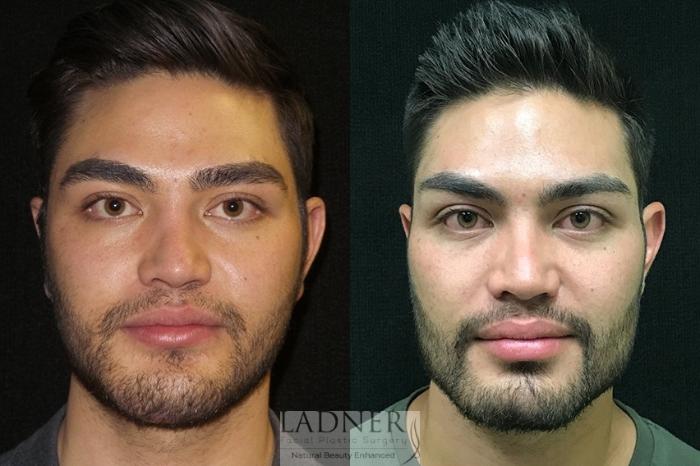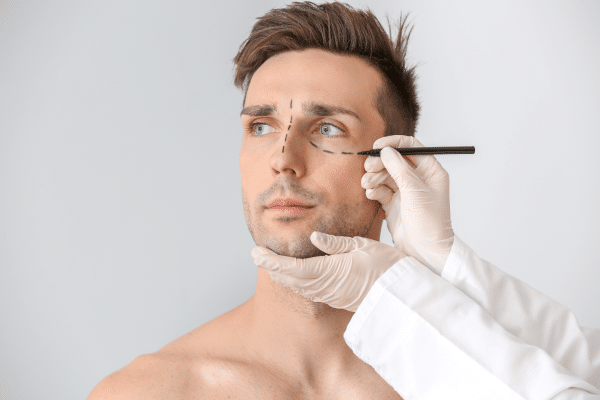Facelift Rancho Cucamonga: Reverse the Clock with Advanced Anti-Aging Solutions
Facelift Rancho Cucamonga: Reverse the Clock with Advanced Anti-Aging Solutions
Blog Article
Investigating the Psychological and Social Aspects That Drive Individuals to Consider Cosmetic Surgery as a Way of Renovation
The decision to pursue plastic surgery usually extends beyond simple aesthetics, intertwining with social and mental dynamics that merit complete evaluation. Factors such as self-esteem, prevalent societal appeal criteria, and the prevalent influence of social networks assemble to form specific inspirations for medical improvement. As these impacts end up being increasingly noticeable, recognizing the underlying psychological and social contexts is vital. What stays to be checked out is the profound impact these aspects have not just on individual identification however likewise on wider societal norms and worths bordering appeal and acceptance.
The Role of Self-worth
Self-worth significantly affects a person's decision to pursue cosmetic surgical procedure. Individuals with low self-worth frequently view themselves in an adverse light, leading to feelings of inadequacy concerning their physical look.

Inevitably, the role of self-esteem in the decision-making process concerning cosmetic surgical procedure highlights the intricate interaction in between body image, personal complete satisfaction, and mental wellness. Comprehending this relationship is essential for health care professionals to guarantee that clients are making informed decisions rooted in reasonable expectations and emotional well-being.
Societal Beauty Criteria
Influenced by prevalent media representations and social stories, social appeal requirements play a critical duty in forming people' understandings of their own bodies. These standards are frequently characterized by an idealized kind of elegance that stresses qualities such as balance, youthfulness, and slimness. As these perfects are continued through numerous networks, including television, movie, and marketing, individuals frequently internalize these messages, bring about discontentment with their natural appearance.
The effects of these societal standards prolong past aesthetic preferences; they can affect self-worth, mental wellness, and interpersonal partnerships. Individuals that perceive themselves as disappointing these requirements may experience feelings of insufficiency, triggering a need for plastic surgery as a way of accomplishing social approval. This quest is frequently sustained by the belief that complying with these ideals will certainly boost not only physical look yet likewise social standing and individual fulfillment.

Impact of Social Media
The effect of social appeal requirements is further magnified by the surge of social media platforms, where curated photos and idyllic representations of charm are common. Customers are continuously revealed to filteringed system and edited photos, which usually depict unattainable physical characteristics. This direct exposure grows a society of contrast, leading individuals to assess their own look versus these commonly impractical standards.
Social media influencers and celebrities frequently promote cosmetic procedures, normalizing the concept that surgical enhancements are a feasible ways for attaining social perfects (plastic surgery rancho cucamonga). The presence of these improvements can develop an assumption that undertaking plastic surgery is a standard practice, thus affecting people to take into consideration similar treatments as a pathway to enhanced self-esteem and social approval
Furthermore, the interactive nature of social networks enables prompt responses via sort and comments, better reinforcing the wish to adapt preferred charm criteria. Such interactions can exacerbate sensations of inadequacy and drive people towards plastic surgery as a method of gaining validation. Eventually, social media sites plays a critical duty in shaping perceptions of appeal, which substantially influences the decision-making processes surrounding plastic surgery.

Social Perspectives on Look
Throughout various societies, assumptions of look are deeply rooted in historical, social, and economic contexts, forming people' views on appeal and worth. In lots of cultures, look serves as a considerable marker of identification, influencing social condition, professional possibilities, and individual connections. For instance, in some societies, light skin is commonly related to riches and privilege, while others may glorify darker skin tones as click for info symbols of stamina and authenticity.
In addition, standard charm criteria are commonly continued through social stories, media depictions, and family affects, leading to varying suitables across various regions (plastic surgery rancho cucamonga). In Western cultures, the emphasis on youth and physical fitness commonly drives people towards aesthetic enhancement, while in particular Eastern cultures, more subtle adjustments lined up with traditional appearances might be chosen
Globalization and the expansion of digital media have actually further made complex these dynamics, creating a hybridization of charm suitables that goes beyond geographical boundaries. As individuals significantly navigate these social stories, the pressure to adapt specific look criteria can result in the wish for plastic surgery, showing an intricate interplay of personal goals and social values. Comprehending these cultural viewpoints is important in resolving the motivations behind cosmetic surgical treatment factors to consider.
Mental Influences of Plastic Surgery
Numerous individuals seeking plastic surgery report experiencing extensive emotional influences that can substantially change their self-perception and emotional well-being - plastic surgery rancho cucamonga. The desire for physical improvement commonly originates from underlying problems such as low self-esteem, body dysmorphic problem, or social pressures relating to appeal requirements. For some, the instant post-operative phase can bring about a momentary increase in positive self-image and complete satisfaction with their look, promoting a feeling of empowerment
Nonetheless, these favorable feelings might not be sustaining. Research study indicates that while some people experience boosted self-confidence, others may encounter elevated stress and anxiety or anxiety if their assumptions are not satisfied. This disparity can develop from unrealistic ideals bolstered by media representation and social stories bordering charm.
Furthermore, the emotional ramifications of cosmetic surgery expand beyond the person. Relationships with family and buddies might be strained as social characteristics change, causing feelings of seclusion or alienation. Inevitably, the psychological influences of plastic surgery are intricate and multifaceted, requiring careful consideration by both prospective patients and doctor to ensure enlightened decision-making and sensible assumptions.
Final Thought
To conclude, the helpful resources decision to go after plastic surgery is substantially affected by a combination of self-confidence problems, societal appeal standards, and cultural point of views on look. The pervasive reach of social media sites further intensifies these stress, promoting impractical perfects that people often make every effort to achieve. Comprehending these emotional and social aspects is essential for dealing with the motivations behind cosmetic surgical treatment, highlighting the requirement for a more nuanced discussion surrounding charm and self-acceptance in modern society.
The decision to pursue cosmetic surgery commonly extends past plain visual appeals, intertwining with social and mental dynamics that warrant thorough examination. Ultimately, social media plays a pivotal function in shaping understandings of charm, which considerably impacts the decision-making processes surrounding cosmetic surgical procedure.
As people progressively navigate these cultural stories, the stress to adhere to specific look criteria can lead to the useful reference wish for cosmetic surgery, mirroring an intricate interplay of cultural worths and personal aspirations.In final thought, the choice to go after cosmetic surgery is dramatically affected by a combination of self-worth problems, social appeal standards, and cultural perspectives on look. Comprehending these psychological and social factors is crucial for attending to the motivations behind cosmetic surgical procedure, highlighting the requirement for an extra nuanced conversation bordering charm and self-acceptance in modern society.
Report this page